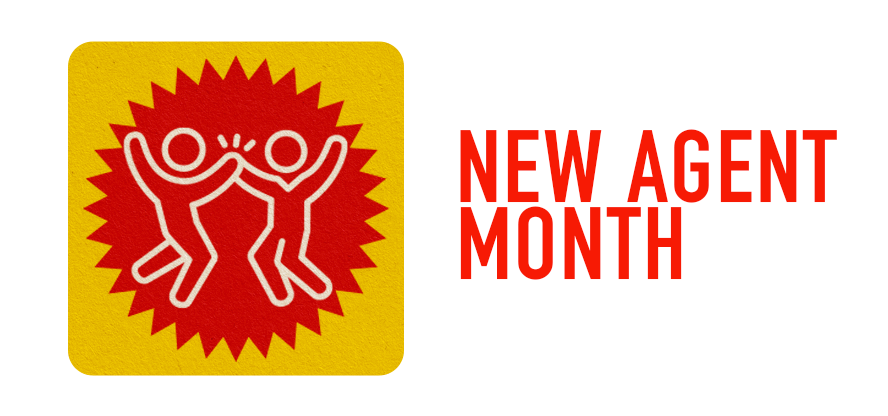A well-prepared business plan, Darryl Davis writes, will help you set a clear direction, stay focused and increase your chances of success.
 October is New Agent Month at Inman. Follow along as we go deeper on the tools, tech and tips you’ll need to survive and thrive in 2024. For curated content crafted just for first-year agents, be sure to subscribe to our weekly newsletter, The Basics.
October is New Agent Month at Inman. Follow along as we go deeper on the tools, tech and tips you’ll need to survive and thrive in 2024. For curated content crafted just for first-year agents, be sure to subscribe to our weekly newsletter, The Basics.
Being a real estate agent is undoubtedly a rewarding and profitable career, but it’s not a walk in the park, especially in today’s market. If you want to be successful in the industry, you need to be prepared to work hard and commit to your success.
One of the most crucial steps you can take toward achieving goals as a real estate agent is creating a business plan. Not just any business plan, though, but one that takes into account three important factors: generating now business, future business and financial security in the form of consistent referrals.
Your business plan serves as a blueprint for your success, guiding you on where to focus your time, money and energy. The best part about this industry is that there is no ceiling; you can go as high as you want.
To reach those heights, you need a well-thought-out plan of action, one that will help guide your decision-making, set realistic expectations and help you create key milestones to track your progress.
1. Define your goals
Before you start creating your business plan, you need to have clear goals in mind.
- What do you want to achieve as a real estate agent?
- Are you hoping to work with a specific niche like first-time homebuyers?
- Specialize in luxury homes?
- Work with veterans or medical practitioners?
- Make a certain amount of money?
It’s essential to define your goals first so you can be more specific when outlining your milestones, strategies and tactics.
2. Determine your budget
Creating a realistic budget will help you allocate your time, energy and resources efficiently. Determine the startup costs, ongoing expenses, and expected revenue by using a spreadsheet, and ensure that your budget covers all essential expenses, such as marketing, rent, taxes, insurance and staff.
Thankfully, there are a lot of things that can be done cost-effectively to avoid overspending, especially when you are first getting started.
3. Know your market
Understanding your target market is critical when developing your business plan. Research your local real estate market and determine what types of properties are in demand. Knowing your market will help you determine your niche and create a plan that’s tailored to your area.
You should also look at your competition; assess what they are doing and whether or not it’s working for them. Look at what they aren’t doing and what gaps there are in terms of neighborhood needs that you could fill.
4. Develop a marketing strategy
Marketing is a crucial aspect of a real estate agent’s success. In your business plan, you need to outline your marketing strategies, including how you plan to prospect for clients, advertise your services, showcase your listings and build relationships with potential customers. You must also consider your budget and identify which marketing channels give you the best ROI.
5. Set realistic targets
It’s important to set goals that are achievable and realistic. Don’t make the mistake of setting high targets that you are unable to achieve. Be honest with yourself about your capabilities, your resources and your limitations. When you set realistic goals, you’re more likely to stay motivated and track your progress more effectively.
6. Create an action plan
Your business plan should have a detailed action plan that outlines the steps to achieve your goals. The action plan should include timelines, deadlines, milestones and performance metrics.
A well-crafted action plan will help you monitor your progress, identify areas that need improvement and prioritize your tasks. It can be broken down into daily, weekly and monthly goals. The most important thing is staying consistent with our activities.
7. Analyze your competition
Knowing your competitors’ strengths and weaknesses will help you position yourself better in the market. Analyzing your competition will help you understand how your business differs from theirs and what you can improve. For instance, you can analyze their pricing strategy, quality of service, marketing tactics, target audience and so on.
8. Measure your success
Tracking your progress is essential in determining the success of your business plan. Identify the key performance indicators that you will be tracking, such as the number of homes sold, families helped, leads generated and referrals received. Regularly track these indicators, and adjust your strategies accordingly to meet your goals.
Preparing your first real estate agent business plan takes time, effort and research. Thankfully, it doesn’t have to be long or complicated, just specific enough to outline what you want to accomplish.
A well-prepared business plan will help you set a clear direction, stay focused and increase your chances of success. Using these tips, you can create a winning business plan that sets you on the path to achieving your goals.
Remember, a business plan is not set in stone, and you can always adjust it to reflect changes in the market or your business. Keep your business plan updated, and refer to it regularly to help you stay on track.
Darryl Davis is the CEO of Darryl Davis Seminars. Connect with him on Facebook or YouTube.



















 English (US) ·
English (US) ·